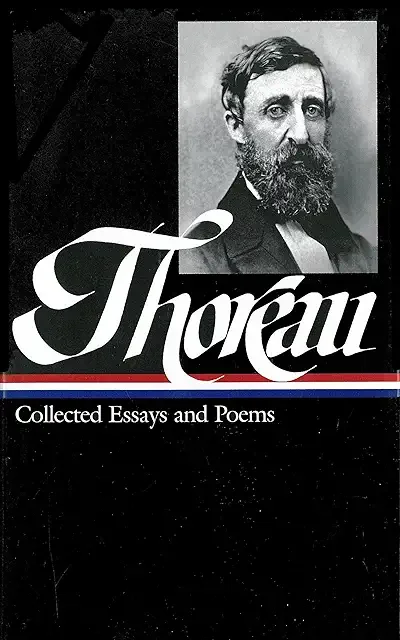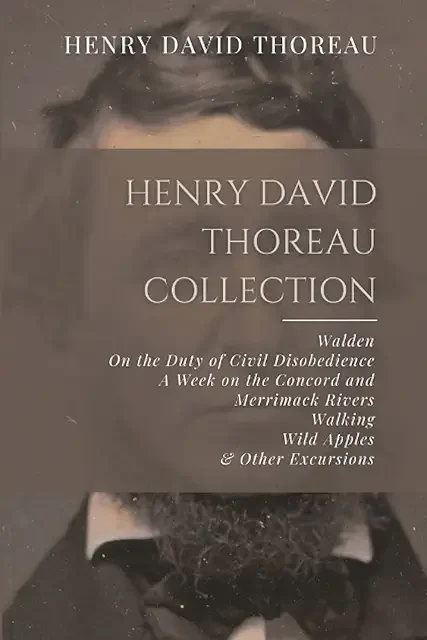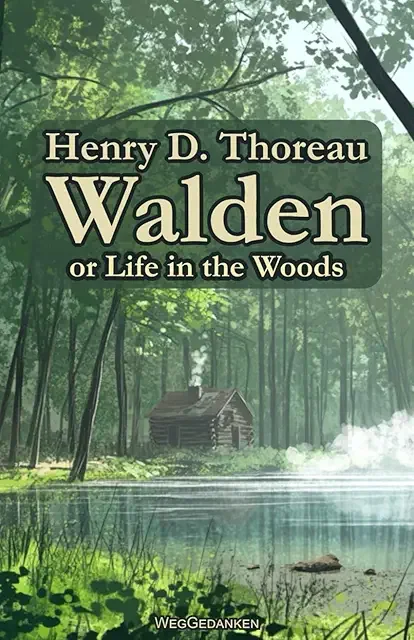Henry David Thoreau
Henry David Thoreau
Birth:
July 12, 1817 — Concord, Massachusetts, USA
Death:
May 6, 1862 — Concord, Massachusetts, USA
(Cause of death: tuberculosis)
Burial:
Sleepy Hollow Cemetery, Concord, Massachusetts
— near his mentors and friends Ralph Waldo Emerson, Nathaniel Hawthorne, and Louisa May Alcott, in what is now called "Author’s Ridge."
Education:
Harvard College, Class of 1837
(Studied rhetoric, philosophy, mathematics, and science)
Henry David Thoreau (1817–1862) was an American writer, philosopher, poet, and naturalist whose work has had a lasting impact on literature, environmentalism, political thought, and spiritual inquiry. Though best known for his prose works, especially Walden and Civil Disobedience, Thoreau’s poetry and essays reveal a unified vision grounded in personal integrity, communion with nature, and moral resistance to injustice.
Poetry
Thoreau began as a poet and continued writing poetry throughout his life. His early poems are often classical in form—tight in structure and influenced by Greek and Roman meter—but grounded in distinctly American themes of wilderness, solitude, and spiritual reflection. Nature was not merely a subject but a source of moral and philosophical insight.
Thoreau’s poetry is marked by restraint and clarity rather than lyrical flourish. While he did not gain renown as a poet in his lifetime, his verse helped him shape the rhythms and ideas later expressed in his prose.
Example excerpt (from “Inspiration”):
Whate'er we leave to God, God does,
And blesses us;
The work we choose should be our own,
God lets alone.
Thoreau did not pursue publication of his poems with great ambition. Instead, poetry served as a tool for inner refinement—a means of crystallizing thought before it appeared in his journals or essays.
-
Here are some of the best and most frequently quoted excerpts from Henry David Thoreau's Walden—a work that blends philosophy, natural observation, and personal reflection. These passages exemplify Thoreau’s core themes: simplicity, self-reliance, solitude, nature, and resistance to social conformity.
1. “I went to the woods because…”
“I went to the woods because I wished to live deliberately, to front only the essential facts of life, and see if I could not learn what it had to teach, and not, when I came to die, discover that I had not lived.”
This is perhaps the most iconic passage in Walden. It encapsulates Thoreau’s experiment in purposeful living and his rejection of superficial existence.
2. On Simplicity
“Our life is frittered away by detail... Simplify, simplify.”
This line has become shorthand for Thoreau’s belief that modern life is burdened by unnecessary distractions and obligations. He urged people to strip away the inessential.
3. On Being Awake
“Only that day dawns to which we are awake. There is more day to dawn. The sun is but a morning star.”
Here, Thoreau uses natural imagery to express a spiritual and intellectual awakening. He suggests that true enlightenment is always just beginning.
4. On Wealth and Poverty
“A man is rich in proportion to the number of things which he can afford to let alone.”
Rather than defining wealth by accumulation, Thoreau redefines it as the ability to do without—freedom from dependency and clutter.
5. On the Mass of Men
“The mass of men lead lives of quiet desperation. What is called resignation is confirmed desperation.”
This critique of conformity and complacency is one of the most famous condemnations of modern social life. Thoreau challenges readers to question whether their lives are truly their own.
6. On Living in the Present
“You must live in the present, launch yourself on every wave, find your eternity in each moment.”
A call to mindfulness and presence, this line reflects Thoreau’s belief that the sacred is found in daily experience.
7. On Nature and Solitude
“I never found a companion that was so companionable as solitude.”
Thoreau cherished solitude not as loneliness, but as space for reflection, connection to nature, and inner clarity.
8. On Change and Growth
“Things do not change; we change.”
This line captures a core transcendental idea—that the external world is stable, but it is our perspective and inner life that evolve.
9. On Aspiration
“If you have built castles in the air, your work need not be lost; that is where they should be. Now put the foundations under them.”
Thoreau encourages idealism—dream big—but also to root those dreams in action and reality.
10. Closing Lines of Walden
“The sun is but a morning star.”
This line ends the book on a note of open possibility, suggesting that the journey of awakening never ends, and that each day offers a new beginning.





